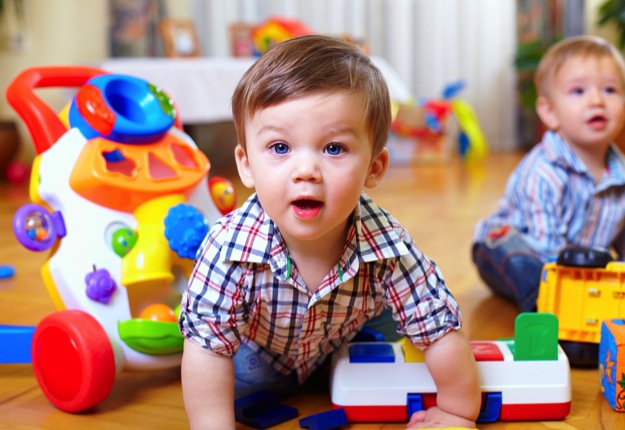As many parents and teachers can attest, the very utterance of the word playtime is a big crowd pleaser among children.
For children play signals a free flowing space of time where imagination and fun bubble to the surface as thrill and delight ensue.
However, playtime is not just a slice of time devoid of any residual benefit.
Leading child behaviourist, Nathalie Brown from Easy Peasy Kids supports the growing body of research that suggests there is a great amount of cognitive and motor skills that are developed when children play.
According to Brown, for children, play is a child’s work, “from birth children actively learn from observing and participating with other children and adults…”
“Children learn from doing, therefore what better way to learn than through play, which actively beckons children with no restraints. Play has no limits, children learn more through fun activities than anything else and in day-to-day interactions with their families.” says Ms Brown.
In addition to general development, playtime helps to foster the capacity of children to understand concepts such as nurturing, responsibility and communication.
For children to gain the full benefit of playtime below are few pointers for parents to help their development flourish:
1) Interacting with others and objects with respect and care
Engaging with toys and other people through play helps children to learn from an early age the importance of taking care with people and objects in the world around them.
Parents can assist children early on by actively encouraging positive play that respects their external environment.
Ms Brown looks to toys such as Australian toy company, Moose Enterprises’ Little Live Pets interactive bird and butterfly as great examples of teaching children how to be gentle.
“Children need to learn how to be gentle with younger siblings, pets, and of course each other. The area of sensory play stimulates the senses through touch and tactile movements, sounds and listening, which the bird and butterfly encourage through play.” says Ms Brown.
2) Understanding the concept of responsibility
When playing with toys or creative endeavours such as art and crafts, children are given the opportunity to understand the concept of responsibility – especially when asked to clean up!
For instance, through playing with a toy pet, children can begin to learn what having their own pet might entail.
According to Ms Brown, parents can impart lessons such as asking children to “show me how you stroke the bird gently” and also saying “this is how I stroke and touch the bird gently.”
Repetition of the new skill ‘being gentle’ is reinforced in this type of play.
Veterinarian, Dr Katrina Warren, warns that allowing young children to interact with animals can often be dangerous for both child and pet. Little Live Pets respond to gentle and encouraging interaction teaching children how to carefully treat and look after animals.
3) Developing language and communication skills
Play whether it occurs with others or individually involves a great amount of communication.
For instance play may involve role-playing, verbal expression of what is happening and negotiation within a child’s external environment.
Parents can help children to foster their language development by initiating conversation and asking questions as to what and how they are deciding to negotiate within their surroundings.
Language and communication with kids can benefit through repetition, imagination and developing new skills. “Little Live Pets encourage communication skills as you can discuss the colours, textures, shapes and patterns and record messages and voices,” says Brown.
The key take away is for parents to prompt rather than micro manage children’s play; ensuring resilience is fostered early on.
Moose Enterprises is an Australian toy company that has become a global leader in establishing toys that encourage and foster positive play habits.





















11:58 am
2:52 am
1:26 pm
3:01 pm
8:19 pm
3:05 pm
5:12 pm
5:33 pm
6:39 pm
1:45 am
11:01 pm
8:15 pm
11:07 am
8:43 pm
12:12 pm
11:38 am
10:23 pm
3:38 pm
2:32 pm
2:52 pm
- 1
- 2
- »
Post a commentTo post a review/comment please join us or login so we can allocate your points.